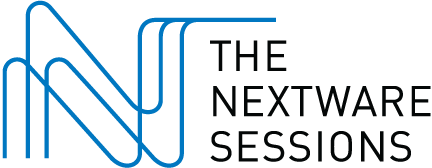The NextWare Cyber Collaboration Toolkit is a product of The NextWare Sessions project, led by Ben FitzGerald, Senior Fellow and Director of the Technology and National Security program at the Center for a New American Security (CNAS), with support from Melody Cook, Creative Director, and Alexandra Sander, Technology and National Security Research Associate. The NextWare Sessions convened a select group of expert stakeholders from key fields to engage in facilitated workshops where they considered a variety of cross-disciplinary, collaborative methods to address endemic cybersecurity challenges and inform the development of the Toolkit. Today’s cyber threats demand deliberate and complete solutions and this project confirmed the need to integrate the deep expertise residing across cybersecurity disciplines and sectors to advance critical thinking and meet this demand.
In spite of the clear importance of cybersecurity collaboration, there are few market incentives to develop and implement collaborative methods at scale. The NextWare Cyber Collaboration Toolkit aims to demonstrate the value of such broad, cross-disciplinary collaboration through a series of tools that guide users through actionable collaborative methods. As a prototype release, the Toolkit requires additional work both in terms of broadening its scope and improving its functionality. The main intent of the Toolkit is to serve as a starting point and catalyst for action in the field with the hope that other research organizations and businesses will implement and further build out its content.
Please Use and Improve Our Content
Given the goal that the prototype release will be extended and improved, we created the Toolkit as an open source resource that users can easily share, adapt, and enhance. CNAS published the Toolkit under a Creative Commons copyright license, which allows others to distribute its content in its existing format or in edited or derivative formats as long as CNAS is acknowledged for the original work. Please note that some content within the Toolkit is republished from other works and is not covered under the Creative Commons license; this content will be clearly marked.
Publishing the Toolkit in a web native format provides users with a dynamic and interactive experience. We encourage you to take advantage of the digital functionality that allows you to input your own data into the tools we developed. To view the original source code behind the NextWare Cyber Collaboration Toolkit, please visit our GitHub page. This code is intended to allow users to deploy the web app inside their own secure environments or to extend and improve the functionality of this prototype.
Security
Please be aware of the following as you use the Toolkit:
- The NextWare Sessions website is protected by a standard Secure Socket Layer (SSL) certificate, which encrypts the information users send to or receive from the website. This will protect your data during active sessions.
- After you end your session, the web app will not store any of the data you chose to enter. This means that copies of your data are not stored on our servers; once you leave the site, you will not be able to retrieve your data.
Acknowledgments
Throughout The NextWare Sessions project, we benefitted from the input of a dedicated group of subject matter experts from Silicon Valley and Washington, DC. In addition, the UC Berkeley School of Information’s Center for Long-Term Cybersecurity (CLTC), the Mozilla Foundation, and Kaye Scholer, LLP have all been great collaborators, instrumental to the project’s success. Lastly, thanks are due to studio1500 for their effective and engaging design work in bringing the concept of the Toolkit to life on the web.

The Center for a New American Security (CNAS) is an independent and nonpartisan research institution that develops strong, pragmatic and principled national security and defense policies. CNAS leads efforts to help inform and prepare the national security leaders of today and tomorrow.
This publication incorporates portions of “SEI Emerging Technology Center Cyber Intelligence Tradecraft Project Deliverables, Implementation Framework – Cyber Threat Prioritization,” by Troy Townsend and Jay McAllister, (c) 2013 Carnegie Mellon University, with special permission from its Software Engineering Institute.
ANY MATERIAL OF CARNEGIE MELLON UNIVERSITY AND/OR ITS SOFTWARE ENGINEERING INSTITUTE CONTAINED HEREIN IS FURNISHED ON AN “AS-IS” BASIS. CARNEGIE MELLON UNIVERSITY MAKES NO WARRANTIES OF ANY KIND, EITHER EXPRESSED OR IMPLIED, AS TO ANY MATTER INCLUDING, BUT NOT LIMITED TO, WARRANTY OF FITNESS OR PURPOSE OR MERCHANTABILITY, EXCLUSIVITY, OR RESULTS OBTAINED FROM USE OF THE MATERIAL. CARNEGIE MELLON UNIVERSITY DOES NOT MAKE ANY WARRANTY OF ANY KIND WITH RESPECT TO FREEDOM FROM PATENT, TRADEMARK, OR COPYRIGHT INFRINGEMENT.
This publication has not been reviewed nor is it endorsed by Carnegie Mellon University or its Software Engineering Institute.
